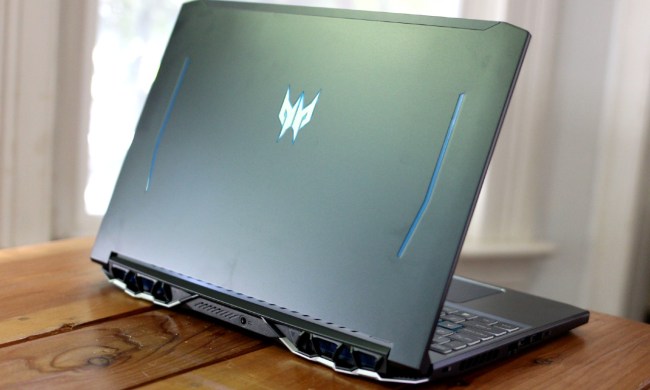In a new video post on Twitter, Intel teased that its 11th-generation H-series mobile processors will be arriving soon in new gaming laptops. The chip-maker said that its upcoming 11th-generation Core i9 H-series mobile processor was “built to hit frame rates like no other.” The H-series mobile CPU was initially announced earlier this year at CES 2021 but has been limited to 35-watt chips in smaller gaming laptops.
In the video, Intel showed that its Core H-series silicon on an ultrathin gaming laptop was able to achieve frame rates in excess of 230 frames per second — up to 238 fps in certain scenes. However, Twitter users were quick to point out that Intel may have selected scenes in the game to help it achieve better frame rates.
“Experienced gamers know that looking up at the sky boosts frame rate,” Twitter user @MaxK1989 wrote in response to Intel’s video with a sad-faced emoji. “Come on guys.”
Built to hit framerates like no other.#11thGen Intel Core H-series processors coming soon…
— Intel Gaming (@IntelGaming) April 23, 2021
Other social media responses to Intel’s videos appear to be similarly skeptical. We definitely have to wait until we can benchmark laptops running Intel’s H-series 11th-generation CPUs to see if the silicon’s performance matches the company’s claims on games across a number of high-end titles.
“Intel launched a new line of 11th Gen Intel Core H-series mobile processors for gaming that extends the 11th Gen mobile family of products and pushes the limits of what’s possible for enthusiast-level gaming in laptops as thin as 16 millimeters,” the company said in a news release earlier this year.” Led by the Intel Core i7 Special Edition 4-core processor with up to 5 gigahertz (GHz) Turbo, these H35 processors are specifically targeted for ultraportable gaming. They feature new Gen 4 PCIE architecture for connecting to latest discrete graphics and deliver amazingly low latency and immersive game play on the go.”
Given the Core i9 reference in the video, we believe that Intel’s metrics were based on its more premium eight-core enthusiast-class gaming silicon for mobile, which comes in at a higher 45 watts of power. These will be a good demonstration of Intel’s 10nm in more performance-heavy systems.
Ultimately, these will provide a preview of its 12th-generation Alder Lake desktop chips, which will complete Intel’s long journey to 10nm.

